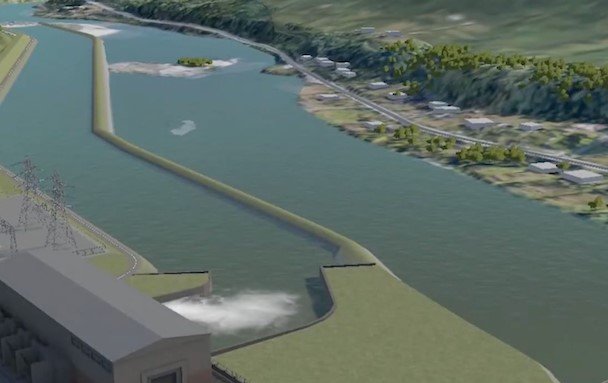ENKA Renewables has officially terminated its contract with the Georgian government to build and operate the Namakhvani Hydropower Plant (HPP) in western Georgia. The decision, announced by ENKA İNŞAAT, the parent company of ENKA Renewables, cites long-standing breaches of contract and force majeure as the primary reasons. This move marks a significant shift in Georgia’s energy landscape, raising questions about the future of energy projects in the region and the country’s path to energy independence.
Background and Reasons for Termination
The Namakhvani HPP project, initially signed in April 2019, was a major undertaking aimed at boosting Georgia’s energy capacity. The project included the construction of two hydropower plants on the Rioni River, with a combined capacity of 433 MW. However, the project faced numerous challenges from the start, including environmental concerns, local opposition, and legal disputes.
ENKA’s decision to terminate the contract was driven by several factors. The company cited breaches of contract by the Georgian government, which allegedly failed to meet its obligations under the agreement. Additionally, force majeure events, such as political instability and regulatory changes, further complicated the project’s viability. These issues ultimately led ENKA to conclude that continuing with the project was no longer feasible.

The termination of the Namakhvani HPP project has significant implications for Georgia’s energy sector. The country has been striving to achieve energy independence and reduce its reliance on imported energy. The cancellation of this major project represents a setback in these efforts, highlighting the challenges of developing large-scale energy infrastructure in a complex and dynamic environment.
Economic and Environmental Impact
The cancellation of the Namakhvani HPP project has both economic and environmental ramifications. Economically, the project was expected to attract significant foreign investment and create numerous jobs in the region. The termination of the contract means that these potential economic benefits will not be realized, which could impact the local economy and broader economic growth.
From an environmental perspective, the Namakhvani HPP project was controversial from the outset. Environmental groups and local communities raised concerns about the potential impact on the Rioni River ecosystem and the displacement of local residents. The termination of the project may be seen as a victory for environmental advocates, who argued that the project posed significant risks to the natural environment.
However, the cancellation also raises questions about Georgia’s ability to balance economic development with environmental protection. The country must find ways to develop its energy infrastructure sustainably, ensuring that future projects do not compromise environmental integrity or local livelihoods. This will require careful planning, robust regulatory frameworks, and meaningful engagement with all stakeholders.
Future of Energy Projects in Georgia
The termination of the Namakhvani HPP project underscores the challenges facing energy projects in Georgia. The country has ambitious plans to expand its renewable energy capacity, but the path forward is fraught with obstacles. Regulatory uncertainty, political instability, and local opposition are just some of the factors that can derail large-scale energy projects.
To overcome these challenges, Georgia must adopt a strategic approach to energy development. This includes creating a stable and predictable regulatory environment that encourages investment while protecting the interests of local communities and the environment. Transparent and inclusive decision-making processes are essential to building trust and securing the support of all stakeholders.
Moreover, Georgia should explore a diverse mix of energy sources to enhance its energy security. While hydropower remains a key component of the country’s energy strategy, other renewable sources such as wind and solar should also be considered. By diversifying its energy portfolio, Georgia can reduce its vulnerability to external shocks and ensure a more resilient energy system.
The future of energy projects in Georgia will depend on the country’s ability to navigate these complex challenges. With careful planning and a commitment to sustainable development, Georgia can achieve its energy goals and build a secure and prosperous future.
